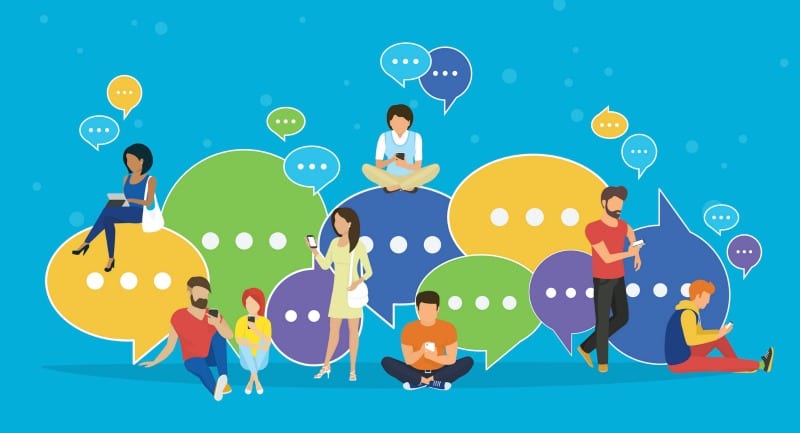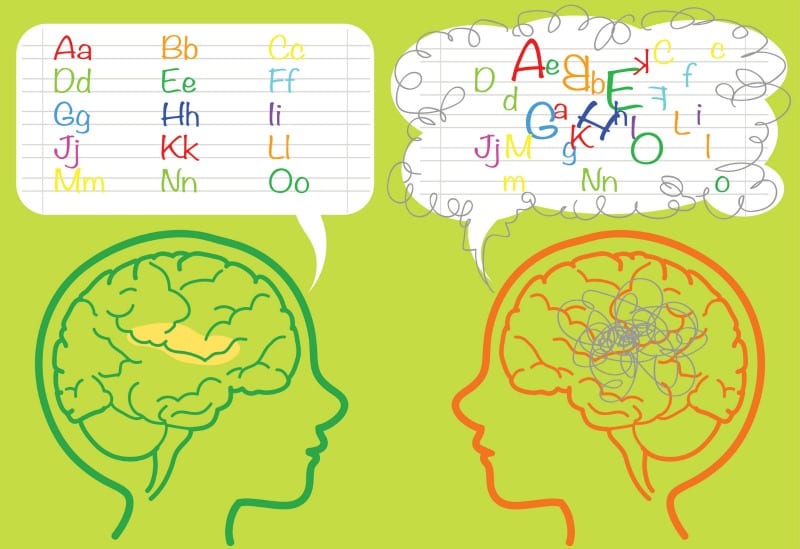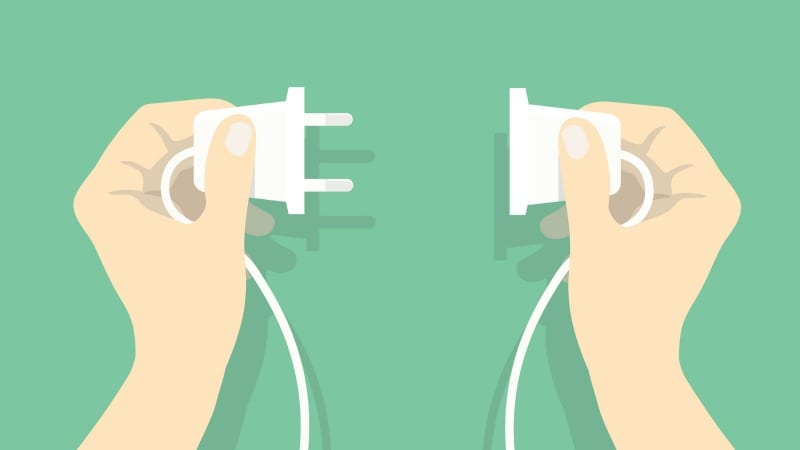Our kids are spending eight hours on electronics every single day. Some say this number is conservative once you add all the time they spend in front of computers and tablets at school.
While there’s no doubt technology is a wonderful tool for education, more reports, studies, and experts are saying we’ve gone too far. In fact, our always-stimulated brains are leading experts to use dramatic terms like digital heroin. It’s not hard to understand the reaction—technology is definitely addictive.
Below, we share some of the powerful brain benefits of unplugging as well as ways to create device-free time in your classroom.
1. Unplugging encourages people to actually talk to each other.

Think about how much teens “talk” to each other electronically. Sometimes they’ll be sitting in the same room but never speak a word to one another. This is hurting social skills and communication, which are essential building blocks for long-term success. An article in Scientific Learning actually explains how the loss of two-way conversations can cause language delays and hurt social skills.
Try this: Have students put away their phones during class for an entire week. Encourage them to try to use them less often outside of class, too. Then organize group work and rotate members of the groups at mid-week. The conversations students will have while they work together will be surprising.
2. Unplugging encourages good old-fashioned handwriting.

Researchers at Princeton and UCLA recently released a report that says students who write things down usually outperform students who take notes electronically. Hey, it’s worth a shot! Time to put your students to the test.
Try this: Run your own research experiment: Start a new unit and have half the students take notes electronically and the other half take notes on paper. Then give a quiz (you can keep it anonymous). Compare the results between the two groups.
3. Unplugging forces students to look you in the eye.
When electronics are in full force, it’s pretty common to have students always looking down. But if you take devices away, kids look up a lot more. The Visual Teaching Alliance reports that our eyes can register 36,000 visual messages an hour, which means there’s a lot of opportunity to reach students on a deeper level.
Try this: Challenge your students to look you in the eye when you teach. And look them in the eye, too. This will help them grasp concepts and will also allow you to see who is understanding concepts overall.
4. Unplugging helps battle FOMO.
Fear of missing out is a real struggle, especially with teens. And social media only exacerbates FOMO, which can lead to depression and anxiety.
Try this: Have a classroom discussion about how FOMO feels. Does it give students anxiety? What other feelings come up for them? Help them identify coping techniques for dealing with FOMO—including spending less time on their phones.
5. Unplugging can give students a challenge.
Adults know just as well as teens that it’s a challenge to cut back on technology use. But when students try to reduce their device time and are successful, they learn that hard work can pay off.
Try this: Join students in a one-, two-, or three-day tech-free challenge and have everyone compare how cutting down on screen time affected their lives.
6. Unplugging helps you connect to different learning styles.

Modern technology can help with comprehension for many students, but for others, it doesn’t work that way. By not planning every lesson around technology, you’re actually supporting different types of learning styles.
Try this: Talk with students about times in their academic careers when it was good to have technology and other times when it worked to be more hands-on. This will help students see that a balance is good.
7. Unplugging encourages students to think outside of the box.
We don’t realize how reliant we are on technology until it is taken away. The term Google it is something many of us live by, and for good reason—it works. But it’s good to know that there are other options, like looking up information in books, asking experts, or doing our own calculations. Plus, the journal Educational Psychology cites resourcefulness as an important characteristic when dealing with long-term stress and academic performance.
Try this: Give students a topic and challenge them to come up with five different ways to solve it, which should also include some non-tech solutions.
8. Unplugging fosters emotional intelligence.
Technology is such an integral part of our lives that we often forget that there are other options available—like common sense, problem solving, and reading human emotions. This NPR report cited a study in the journal Computers in Human Behavior that showed students who were not exposed to technology were significantly better at reading human emotion.
Try this: Put students into groups and challenge them to solve everyday problems and concerns by interviewing people. Encourage them to use those skills related to problem-solving and human emotion to find answers.
9. Unplugging calms the mind.

Study after study is showing that when we “unplug,” it actually acts like a reboot to the brain. The global media study Unplugged, led by the International Center for Media & the Public Agenda, lists some eye-opening facts about how technology addiction affects the brain.
Try this: Have your students pick one device to give up for an entire day and predict how they will feel about not using it. The next day, have them look at what they missed out on by not using the device and talk about how the reality compared to their prediction. Did they think they’d miss out on more news or activity than they really did? There’s a good chance they’ll see that one day away from the device didn’t deprive them of much at all.
10. Unplugging might help you get more vitamin D.
It’s not hard to understand that when you put down the electronics, you go outside more. This increase in vitamin D is hugely important. Doctors are actually prescribing outdoor time to some patients because of long-term health problems stemming from vitamin D deficiency, like diabetes and heart disease. According to research from Harvard University, nearly 50 percent of the population has a vitamin D deficiency.
Try this: Build in more outside time for your students, whether it’s holding class outside, a field trip to a local nature park, or even a class trip to the other side of the globe. Remember to leave the devices indoors!
11. Unplugging gives us a better relationship with the natural world.

Have you ever gone on a school trip and noticed that students aren’t paying any attention to the attractions, or even to one another, because their noses are in their phones? It turns out that even having a phone in a bag may be distracting.
Try this: Plan an unplugged trip for your students, whether it’s a local outing or a trip to another country. Challenge your students to go device-free during your journey and encourage students to connect with a new culture the “old-school” way. For instance, have your students observe the art and architecture of the places you visit, interact with nature and the environment around you, engage in conversation with locals, sample new foods, and more. This is what travel is all about—learning by experiencing things first-hand.
12. Unplugging helps us all focus on the RIGHT NOW.
It can be challenging to focus on the moment. Social media keeps distracting us, and research shows that average American is checking their phone more than 46 times a day!
Try this: This is one where recognition is the first step. Challenge your students to keep track of how many times they get distracted by social media or electronics and then discuss as a group. Together, come up with ways to stay in the NOW instead of letting the mind wander.
What have you seen to be the benefits of unplugging? What do you do to find device-free time for your students? Come and share in our WeAreTeachers HELPLINE group on Facebook. WeAreTeachers HELPLINE is a place for teachers to ask and respond to questions on classroom challenges, collaboration and advice.

